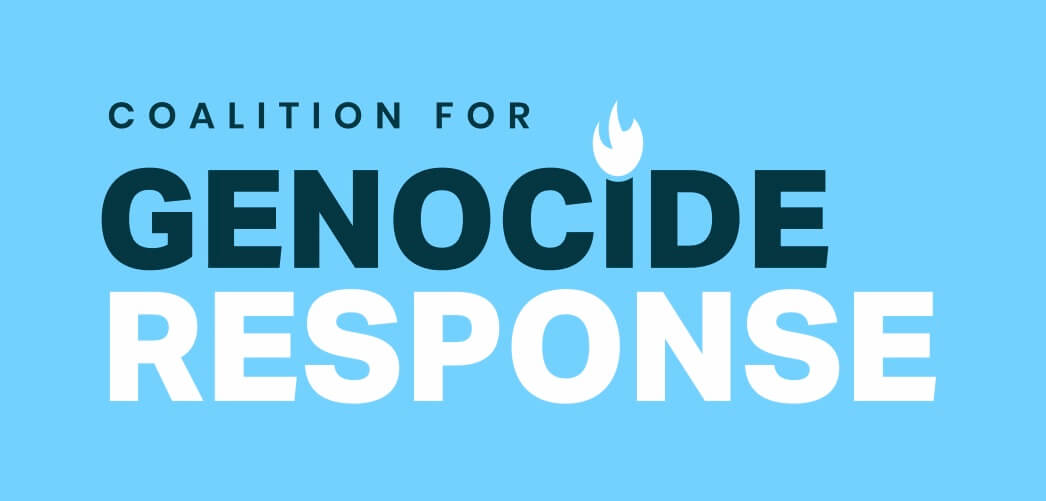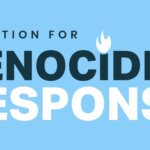
Our co-founder, Ewelina U. Ochab, joined several lawyers and genocide scholars challenging the recent piece published by the Economist. Read it here:
Letter to the Economist
On February 13, 2021, The Economist ran a piece, “Genocide” is the wrong word for the horrors of Xinjiang, making several claims that are erroneous and need to be addressed. Genocide is not a word that should be used lightly. However, it does not mean that it should not be used. Indeed, where the elements of the legal definition are met (as per Article II of the UN Convention on the Prevention and Punishment of the Crime of Genocide (the Genocide Convention)), the crimes should be labelled exactly for what they are.
‘Genocide’ as defined by the Genocide Convention and customary international law (and indeed US domestic law) does not necessarily entail the immediate destruction of the group by ‘mass slaughter.’ Destruction of the group (in whole or in part) must be the intended result, but this may be achieved in a number of ways. In the case of the Uyghurs, in terms of the legal test, allegations include killing members of the group, causing serious bodily or mental harm to members of the group (including physical abuse, rape and sexual violence), deliberately inflicting on the group conditions of life calculated to destroy the group (by way of concentration camps, forced labour and other atrocities as a whole), imposing measures intended to prevent births within the group (by way of forced sterilisations, forced abortions, and also rape), forcibly transferring Uyghur children to another group. These acts are supported by evidence of the specific intent to destroy this ethno-religious group. This is in addition that to the fact that the specific intent can be inferred from the pattern and systemic nature of the atrocities. Understandably, each element of genocide has to be scrutinised in consideration of all the available evidence. It is wrong to claim that the US Administration woke up one day and decided to call the atrocities against the Uyghurs genocide. Indeed, the State Department has been working on the topic for months and uphold their own obligations between parties.
In a perfect world, the allegations of genocide against the Uyghurs would be considered by an international court or tribunal or a specially established UN investigative mechanism, but this has not been done and it is unlikely to happen, given China’s powerful position at the UN and reservations to, or non-membership of, relevant treaties. This, however, does not preclude States making their own determination. In fact, States, as the duty holder under the Genocide Convention, must make such determinations to inform they responses.
The article misses the fact that the Genocide Convention imposes certain duties upon States: the duty to prevent and punish.
The duty to prevent genocide is extensive and critical. As the International Court of Justice (ICJ) in the case in Bosnia and Herzegovina v Serbia and Montenegro clarified, the duty to prevent: ‘Arise[s] at the instant that the State learns of, or should normally have learned of, the existence of a serious risk that genocide will be committed.’ If this is the case, States must conduct their monitoring, analysis and determination of at least the serious risk of genocide very early on – in order to engage their duties. This ultimately means that States need to engage with considerations surrounding the legal elements of genocide and/or risk factors, as for example, per the UN Framework of Analysis for Atrocity Crimes and Jacob Blaustein Institute’s Compilation of Risk Factors and Legal Norms for the Prevention of Genocide. As such, where, after the analysis of all relevant evidence, States conclude that the evidence indicates commission of genocide or a serious risk of genocide, such an analysis should not be disregarded as an ‘exaggeration’ or ‘rhetorical escalation.’
In order to ‘punish genocide’, States must introduce domestic laws to give effect to the Genocide Convention, including, criminalising genocide, conspiracy to commit genocide, direct and public incitement to commit genocide, attempt to commit genocide, and complicity in genocide. This is where meeting the precise elements of the crime are crucial as otherwise the charges would not stand.
It accomplishes nothing to reject such an analysis of the evidence and using euphemisms out of fear of upsetting the state perpetrating genocide. There are practical effects of a determination. Indeed, and again, as per the ICJ, once the state learns or should have learned about the serious risk of genocide, ‘from that moment onwards, if the State has available to it means likely to have a deterrent effect on those suspected of preparing genocide, or reasonably suspected of harbouring specific intent (dolus specialis), it is under a duty to make such use of these means as the circumstances permit.’
Claims that an analysis of the situation is an ‘exaggeration’ or ‘rhetorical escalation’, and this without any evidence in support, means that States may well evade acting upon their duties claiming that the trigger for the duty to prevent is not reached. That has too often been the case as the world watches genocides take place.
In a world where genocide still occurs, despite the promises of Never Again, inaction is not an option. We need to ensure that we are equipped to prevent genocide as the cost of allowing it is too great: it is the cost of lives and it is also the cost of our humanity.
Baroness Helena Kennedy QC, Director of the International Bar Association’s Human Rights Institute
Ewelina U. Ochab, Co-founder of the Coalition for Genocide Response
Zachary D. Kaufman, JD, PhD, Associate Professor of Law and Political Science, University of Houston Law Centre
Kyle Matthews, Executive Director of the Montreal Institute for Genocide and Human Rights Studies at Concordia University
John Packer, Neuberger-Jesin Professor of International Conflict Resolution at the Faculty of Law and Director of the Human Rights Research and Education Centre at the University of Ottawa
Michael Polak, Barrister, Lawyers for Uyghur Rights, Committee World Uyghur Congress London Office
Nury Turkel, Attorney, Co-founder and Board Chair of the Uyghur Human Rights Project
Joanne Smith Finley, Reader in Chinese Studies, East Asian Studies, School of Modern Languages, Newcastle University


